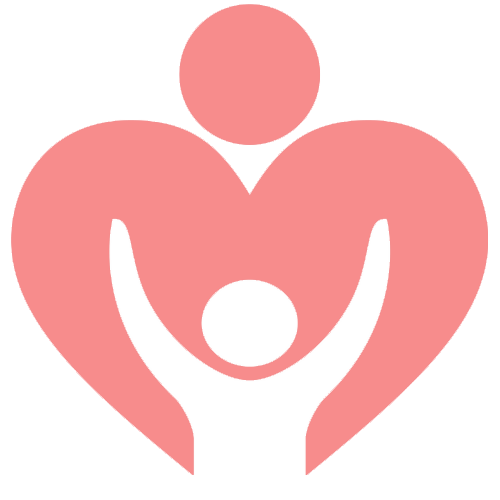A feeling of fatigue overtakes a woman from early pregnancy. She begins to experience weakness, drowsiness, and a desire to sit down, lie down, and sleep. Any physical activity leads to a feeling of fatigue. This is a very common symptom during pregnancy.
Fatigue is caused by sudden changes in the body associated with pregnancy. These are hormonal changes, increased stress on the cardiovascular system, emotional instability, and physiological changes. The physical activity of a woman during the gestation period is significantly reduced.
When Does Fatigue Start in Pregnancy?
Rapid fatigue makes itself felt already in the first month of pregnancy. The symptom is accompanied by shortness of breath, weakness of the body, drowsiness, and irritability. Fatigue in the third trimester is burdened by a large belly, clumsiness, and a feeling of helplessness. This begins due to the increased load on all organs and systems.
EXACT WEEKS IT MAY HAPPEN
Complaints of increased fatigue were recorded in the first trimester at the 4th, 8th, 11th, and 12th weeks of pregnancy. This is due to changes in the hormonal background and symptoms of toxicosis.
The second trimester is characterized by a slight increase in energy, increased activity, and improved mood. New signs of fatigue may appear in the third trimester. They manifest themselves at 39-40 weeks.

When will it end?
The first symptoms of fatigue disappear by the end of the first trimester – this is the 12th week of pregnancy. There is a normalization of the level of hormones and the woman’s body gets used to its position. Fatigue is not typical for the second trimester, and in the third trimester, it occurs closer to childbirth at the 39-40th week and disappears with the birth of the baby.
How Does it Feel?
How fatigued a woman will feel depends on her general physical fitness. Exercise, proper nutrition, and healthy sleep – reduce the manifestation of fatigue. The symptom manifests itself moderately if there is no vegetovascular dystonia, reduced muscle tone, or excess weight.
Acute
Excessive fatigue in an acute form is manifested by severe weakness, irritability, drowsiness, and helplessness. The woman feels powerless to cope with elementary household chores. She is lethargic, inactive, and depressed.
Mild
A mild form of fatigue is expressed in a rapid loss of energy, frequent daytime sleep, and feeling tired throughout the day. A woman prefers physical static and long rest.
Fatigue should not turn into a habitual way of life of a pregnant woman!
Prevention methods
Preventive measures to reduce the symptoms of fatigue are best started long before pregnancy. Maintaining a healthy lifestyle must be practiced at least six months before the intended conception. It includes a set of measures to improve physical fitness, improve nutrition, take vitamins, etc.
Regular exercise
Muscle tone ideally needs to be increased before pregnancy. This is perfect for exercising regularly. It can be athletics, swimming, gymnastics, or yoga. Work out at home if for some reason you cannot go to the gym. Pick a group of suitable exercises and do them 3 times a week. This will improve muscle tone, normalize blood circulation and increase physical endurance.
Sleep mode
Chronic sleep deprivation lowers serotonin levels, increases irritability, and anxiety, and creates a burnout effect. A woman in this state cannot cope with her usual affairs. Compliance with the sleep schedule will allow you to restore strength and accumulate energy reserves. Pregnancy will proceed without bright symptoms of fatigue.
Strengthening blood vessels
Increased fatigue is observed in the presence of functional disorders of the nervous regulation of vascular tone. Engage in training the vascular system by hardening, proper nutrition, and taking drugs that strengthen blood vessels.
A significant role in strengthening blood vessels is played by quitting smoking, alcohol, coffee, and fatty and sweet foods. Fatigue directly depends on the work of the cardiovascular system.
Why Fatigue Occurs in Pregnancy?
The hormonal background of a woman changes rapidly during pregnancy. A surge of progesterone and estrogen causes destabilization of the emotional sphere, depletes the nervous system, and provokes outbursts of anger. A woman reacts to stimuli more strongly, which quickly tires her and deprives her of strength.
The load on the cardiovascular system increases tremendously in the first months of pregnancy. The body of a woman begins to work for two. Resources for such functioning are not enough. Energy costs exceed its reserves. This leads to increased fatigue.
The woman’s abdomen is greatly enlarged in late pregnancy. This limits her physical abilities. The woman gains weight and moves less. This makes her weaker, tired, and energetically depleted.
Remedies
The fight against already observed increased fatigue includes the means available to every woman. You need to adjust your daily schedule and harmonize the balance of work and rest. Reduce the load on your body during the gestation period and ask for help from loved ones. The most effective means of combating increased fatigue:
Regular walks in the fresh air
Physical activity does not have to be a sport. You can just walk every day for at least 1-2 hours. This will increase the level of oxygen in the blood, strengthen blood vessels, improve muscle tone and stabilize the emotional state.
Daytime sleep
Introduce daytime sleep without fail if possible. It quickly and effectively restores energy reserves, gives strength, and improves mood. Sleep can be short up to 40 minutes or long up to 2 hours.
A complex of vitamins
Prenatal vitamins must be taken to maintain the body during the gestation period. They eliminate micronutrient deficiencies. Vitamins will reduce the symptom of fatigue and restore vitality in combination with proper nutrition and physical activity. Prenatal vitamins must be non-synthetic and approved by your doctor.
WHEN TO CONTACT A DOCTOR?
Increased fatigue associated with anxiety, melancholy, aggression, and sudden mood swings should be checked by a doctor. These symptoms are often a sign of depressive disorders. There should be no dizziness, fainting, or very long daytime sleep.
It is necessary to examine if there are such signs. Serious diseases have frequent symptoms in the form of fatigue.
What Not to Do
A lot of mistakes are made by women who are prone to increased fatigue. Many women confuse such a symptom with laziness, accusing themselves of taking advantage of their position. This is not worth doing because you can earn an intrapersonal conflict. He is very difficult to treat. Consider examples of what you definitely should not do with increased fatigue:
Load yourself with work
It is impossible to increase energy by increasing the working day or the number of household problems. No need to overload yourself if you feel weak. Be sure to put aside all the planned activities and rest.
Skip meals
Food is one of the main sources of energy. Skipping lunch or breakfast will lead to severe nutritional deficiencies. As a result – weakness, fainting, and loss of strength.
Drink coffee or other energy drinks.
Caffeinated drinks have huge negative effects. This is high blood pressure, problems with blood vessels, addiction, and much more.












